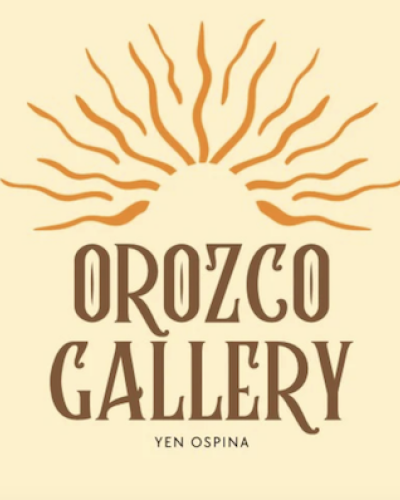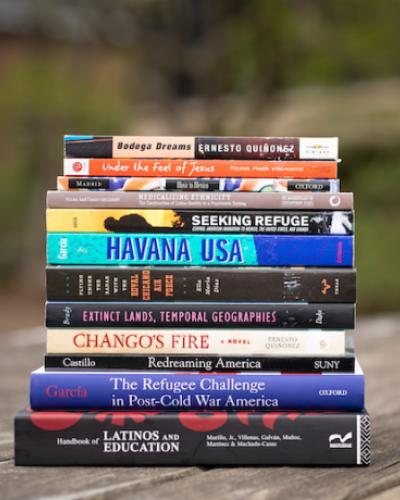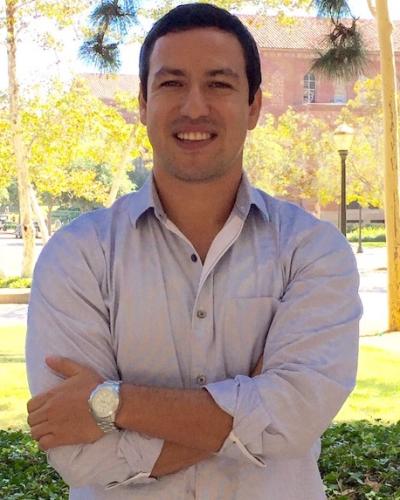Dr. Fernando Enrique Villegas Rivera (he/him/el), new visiting assistant professor in the Department of Government and the Latina/o Studies Program (College of Arts & Sciences), emphasized "it is not a mistake to be passionate" about issues you care about. Villegas Rivera is passionate about the politics of migration in the U.S., Mexico, and worldwide; he pledged to share this passion and knowledge by teaching courses and engaging with Cornell Latino/a/e students.
Villegas Rivera joins Cornell from UCLA, where he obtained his Ph.D. in the Department of Chicana, Chicano, and Central American Studies department with a focus on migration public policy—Villegass interest in migration dates back to the early days of his academic career. Born and raised in Mazatlan, Mexico, he received his B.A. in Political Science and Public Administration a M.S. in Social Sciences and an M.A. in Chicana/o Studies . His book manuscript focuses on progressive state citizenship projects in North America. It investigates the organizational and socio-political factors that influence the approval of pro-migrant laws and policies at the subnational level in both the United States and Mexico.
Fernando's scholarly contributions span various topics related to migration, collective remittances' impact on regional development, transit migration, the interplay between social movements and migration policies, as well as research on Latino faith-based organizations.
As a UC MEXUS-CONACYT Doctoral Fellow, Fernando's research has garnered support from prestigious institutions, including the Latin American Institute (UCLA), the Center for the Study of International Migration (UCLA), the Institute for American Cultures (IAC), and the International Institute (UCLA), among others. Fernando's interdisciplinary research skills have enabled him to participate in international research initiatives. One of these projects is titled "Transit Migration along Mexico’s Ruta Pacifico: analyzing the State, Civil Society, and Communities". As a researcher, Fernando implemented participatory action research to better understand how the government, local NGOs, and communities in Sinaloa address transit migration.
In Mexico, Villegas Rivera examined the relationship between hometown associations (HTAs), clubs, and Mexican government agencies. Specifically, he explored and researched collective remittances' economic, social, and political impacts on community development in Sinaloa, México.
Villegas Rivera was awarded the UC MEXUS-CONACYT Doctoral Fellowship to study at UCLA and served as a teaching associate to the Chicana/o Studies departmentFor his dissertation, he conducted a binational study of migration public policies in California and Mexico, emphasizing how immigrant rights groups are vital actors during the policymaking process. Given the polarized climate around the time of the 2016 election aligned with his time as a doctoral student, Villegas Rivera's studies were more relevant and timely than ever.
However, he "doesn't really know where the [academia] desire came from," articulating how he didn't realize the significance of race in academia until coming to the U.S. He defined his "aha moment" when he realized "once I crossed the border, I am no longer a white-passing Mexican." Despite experiencing this culture shock, Villegas Rivera described feeling "grateful to learn from different theoretical lenses" especially regarding the importance of intersectionality in analyzing social injustice.
Describing his journey as an "emotional rollercoaster," Villegas Rivera discussed a more personal struggle: "Studying in the U.S. has been a challenge without being a U.S. citizen." Although here on a visa, not having citizenship creates numerous barriers to entry in addition to language barriers and the financial cost of being in the U.S. He has considered returning to Mexico but opted not to because of criminal violence and social instability,
At Cornell, he aspires to share and inspire knowledge, enabling Villegas Rivera to interact with Cornell students, especially those in the Latino/a/e community. This fall semester, Villegas Rivera is teaching Latino Politics as Racial Politics (LSP 4283, AMST 4283, GOVT 4283), a course examining the social, policy, and political needs of the diverse Latino community through the lens of (im)migration and interethnic/racial relations.
Next semester, he will be teaching two courses. One of them is the same course taught in the fall. The second course is (Im)migration and (Im)migrants: Then and Now (LSP 2152, AMST 2152, GOVT 2152), aimed at examining the historical and contemporary roles of immigration in the U.S. political system. Cornell, in his words, is an academic "oasis." With plenty of knowledge and ideas waiting to be shared and discovered, Villegas Rivera intends to examine and question notions of systemic inequality, and debates in the fields of Latina/o/x Studies and Political Science , encouraging students to do the same.




